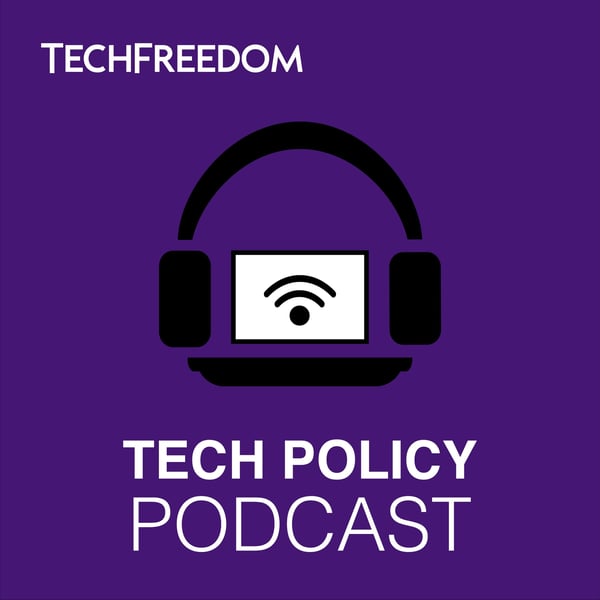#204: Digital Learning: Future or a Flunk?
Tech Policy Podcast
TechFreedom
4.8 • 45 Ratings
🗓️ 13 November 2017
⏱️ 37 minutes
🧾️ Download transcript
Summary
Transcript
Click on a timestamp to play from that location
| 0:00.0 | Welcome to the Tech Policy Podcast. I'm Evan Schwarger. |
| 0:10.0 | On today's show, online education. The internet has revolutionized our world in so many ways, |
| 0:15.8 | giving people access to more information than ever before and making it easier to communicate with more people than ever |
| 0:21.3 | before. But has the internet really changed education? Or are we still seeing essentially the same |
| 0:27.3 | old system, whether it's public schools or private schools, with an instructor in the classroom |
| 0:31.9 | and a report card and SATs and all that? But is education right for disruption and can technology be that disruptor? |
| 0:41.6 | Joining me to discuss this is Jan Hein Hochstadt. I hope I didn't butcher that too badly. |
| 0:46.8 | He's the founder and technology developer for Off Course. This is an online education platform, |
| 0:53.6 | and you can check it out at offcourse.io. |
| 0:56.2 | That's offfcourse.io. Jan, thanks for joining. Hey, great to be here. |
| 1:02.8 | So before we jump into the topic of online education and what it means for policy, tell me about |
| 1:08.6 | off course. What does your platform do? So off course is a tool for everyone |
| 1:15.6 | that wants to learn. And we would say we specialize or we focus on people that do either or both |
| 1:21.9 | probably just in time learning and lifelong learning. And that means that we realize that there's a lot of people nowadays |
| 1:29.4 | that learn all the time. It's no longer like in the old days that you learned in school |
| 1:34.3 | and then you knew something and you were an expert and you went on to, I think in the old days |
| 1:40.0 | it was an abstraction or it was a lie as well, but nowadays we're much more aware of it. So basically what of course does is it facilitates people that want to learn on their own, |
| 1:49.0 | and that want to learn new things. |
| 1:51.0 | And we do that by simply using what's already there, and that's a lot of learning material on the Internet. |
| 1:57.0 | And we provide a very simple, but in my opinion, efficient abstraction, to share those links, to share those resources, to structure them, and to make sure that you know where, how to go from A to Z, know where to start, know what's good, what is bad, work on curricula, share them. |
| 2:14.9 | So if I had to say it in like two words, I would say it's an online |
| 2:19.5 | syllabus, but an interactive crowdsourced, interactive crowdsourced and collaborative |
... |
Please login to see the full transcript.
Disclaimer: The podcast and artwork embedded on this page are from TechFreedom, and are the property of its owner and not affiliated with or endorsed by Tapesearch.
Generated transcripts are the property of TechFreedom and are distributed freely under the Fair Use doctrine. Transcripts generated by Tapesearch are not guaranteed to be accurate.
Copyright © Tapesearch 2025.

